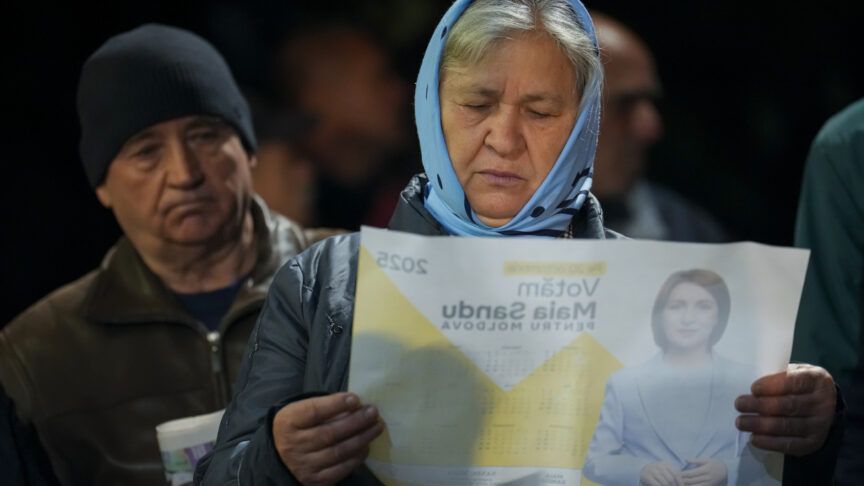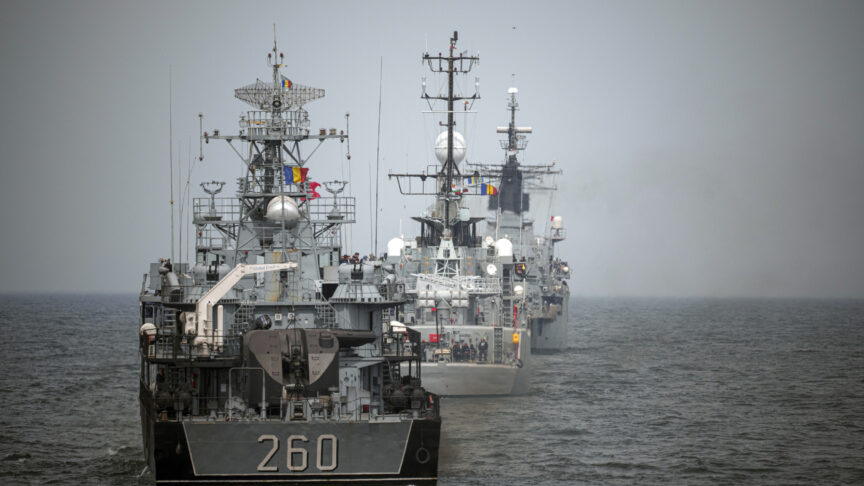Has Germany sidelined Poland in Ukraine crisis negotiations?
Polish-German co-operation on Ostpolitik has been shaken by Germany's role in negotiations with Russia on Ukraine.
As Germany takes over leadership of the European Union’s efforts to solve the Ukrainian crisis, Poland is questioning the motivations and strategies behind Berlin’s new diplomatic activism. The initiatives of German Foreign Minister Frank-Walter Steinmeier and Chancellor Angela Merkel are being followed closely in Warsaw – and often with mixed feelings. Is Berlin trying to mastermind a compromise with Russia on Moscow’s terms, ignoring Kyiv’s vital interests? And as Poland is increasingly edged out of the conflict resolution process, has Berlin-Warsaw co-operation on EU Ostpolitik broken down?
Poland was, along with France and Germany, one of the countries that orchestrated the political shift in Ukraine in February. Since then, Warsaw has played a central role in forging a bolder EU response to Russia’s aggression and in providing meaningful assistance to the Ukrainian government.
However, as the conflict has worsened, Warsaw has become less visible as an actor in crisis diplomacy. Polish Foreign Minister Radek Sikorski was not invited to join his German, French, Russian, and Ukrainian counterparts in the negotiations on conflict resolution held in Berlin in early July and early August. Before Ukrainian President Petro Poroshenko and Russian President Vladimir Putin agreed to meet at the Customs Union summit in Minsk on 26 August, the idea had been floated of holding another high-level meeting in the “Normandy format” of France, Germany, Russia, and Ukraine. This meeting would have included Merkel and French President François Hollande – but not Polish Prime Minister Donald Tusk.
The Polish Ministry of Foreign Affairs downplayed Tusk’s omission from the crisis talks. But in Poland, many media outlets and opposition members voiced criticism about Poland’s “exclusion” from the peace talks and the “failure” of Polish diplomacy.
What Germany wants
With the conflict in Ukraine threatening to spiral out of control, Berlin is desperately seeking a political solution. The German government’s reasoning seems to be shaped by a few observations and convictions.
First, the German government now sees that the conflict will not be resolved by military means. As recently as a few weeks ago, things looked slightly different. The Ukrainian army was successfully pushing back the rebels and sources in Kyiv optimistically signalled that an end to the separatism in East Ukraine would come within days rather than months. However, Ukraine’s central government overestimated both its own capacities and Russia’s determination in its support for the separatist republics in Donetsk and Luhansk. Moscow still denies that it has full control of the separatists, but it has started more or less openly to deliver military equipment to them. This means that the separatists are unlikely to fold as easily as the central government had hoped.
Berlin is also aware that should the conflict escalate, Germany’s role as mediator would be defunct and Berlin would have to choose a side. The German government wants to avoid this at (almost) any price. But it is very possible that this is exactly what will happen. Given the domestic policy dynamics in both Ukraine and Russia, neither side is likely to give in, since giving up would entail settling for a zero-sum solution in the rebelling regions. This refusal to bend could lead to open war and the consequences for Germany and for the EU would be unpredictable.
Berlin also believes that a way out of the crisis should be left open for Putin, because, as many commentators have argued, “a cornered prey is unpredictable”. Germany thinks that, under pressure from the West’s sanctions and from Russian nationalism (fuelled, to be sure, by Putin’s own propaganda), the Russian president has become a prisoner of his own policy. One of the principal goals of the “Normandy format” talks seems to be to explore opportunities for the Russian leader to save face.
The outcome of this effort, unfortunately, has been frustrating: Moscow is not prepared to compromise but instead still wants its demands met. It is holding out for preserving its grip on Ukraine, whether by “freezing” the conflict in East Ukraine or by enforcing concessions from Kyiv in the form of the federalisation of Ukraine. Federalisation would enable Moscow, through its proxies in East Ukraine, to exercise influence over the internal affairs of the Ukrainian state.
Up until recently, fears that Germany would push for federalisation on Russian terms seemed justified. And concern that Berlin might support a Russia-leaning compromise is still fuelled by leading German politicians such as Vice-Chancellor Sigmar Gabriel, who has urged Ukraine to federalise the country in order to accommodate its Russian-speaking minority in the east.
However, it now looks less likely that Germany wants to engineer such a compromise. The message of Merkel’s late August visit to Kyiv was that any resolution to the conflict would have to respect Ukraine’s sovereignty and territorial integrity. Berlin is signalling that there will be no return to “business as usual” with Moscow before a sustainable solution to the crisis has been found.
Most importantly, Polish diplomatic sources confirm that there is no indication that Berlin is twisting Ukrainian arms to convince them to accept Russia’s condition of federalisation in exchange for a ceasefire. It seems that even Berlin has given up the idea that federalisation on Russian terms would be a viable or desirable option.
Polish-German co-operation weakens
Disillusionment about the prospects for compromise with Russia seems to run much deeper in Berlin than the official statements of Steinmeier or Merkel would suggest. Germany’s policy in Ukraine is driven neither by naivety nor cynicism; rather, it is shaped by a deepening sense of helplessness. Of course, helplessness is by no means reassuring, given Germany’s role in shaping EU policy. But it explains why Warsaw is not seriously suspicious of Berlin’s recent diplomatic efforts, although it is not particularly sympathetic or hopeful about them either.
It is no secret that the “Normandy format” is the only one that Moscow will accept and it is not at all clear that Polish participation would make any substantial difference to the outcome. Berlin has made sure to report back to its partners, including Poland, about the talks. And while Sikorski has been criticised by the opposition for his “failure” to be part of the process, the criticism would likely be even more devastating if he had meetings with Russian Foreign Minister Sergei Lavrov and they yielded no results. So, “exclusion” from negotiations is perhaps not so bad for the Polish administration after all.
This does not mean, however, that the Ukrainian crisis casts no shadow on Polish-German co-operation on Ostpolitik. Warsaw is convinced that one reason for the current bad situation is Berlin’s failure to confront Russia with a quicker and bolder response in the early phase of the crisis. And Poland is not pleased with Germany’s insistence on fully respecting the NATO-Russia Founding Act of 1997, or with its opposition to the deployment of NATO troops in Central and Eastern Europe. According to one Polish diplomat, Germany’s stance has raised doubts as to whether in the security and military spheres, Berlin “respects more the interests of Russia or the need for reassurance of its neighbours and allies”.
The NATO summit to be held in Newport on 4-5 September will likely end the dispute between Poland and Germany for the moment. However, the prospects for a solution to the Ukrainian crisis in the short or medium term are very bleak, and a prolonged, frozen conflict seems the most probable outcome. In this scenario, Poland and Germany will have to show both determination and long-term engagement in supporting Kyiv and its European choice. Polish-German co-operation has always been seen as a precondition for a successful EU policy towards Russia. But today, paradoxically, even though Polish and German views are closer than ever before, the EU is on the brink of a historic failure in its approach to Eastern Europe.
The European Council on Foreign Relations does not take collective positions. ECFR publications only represent the views of their individual authors.


